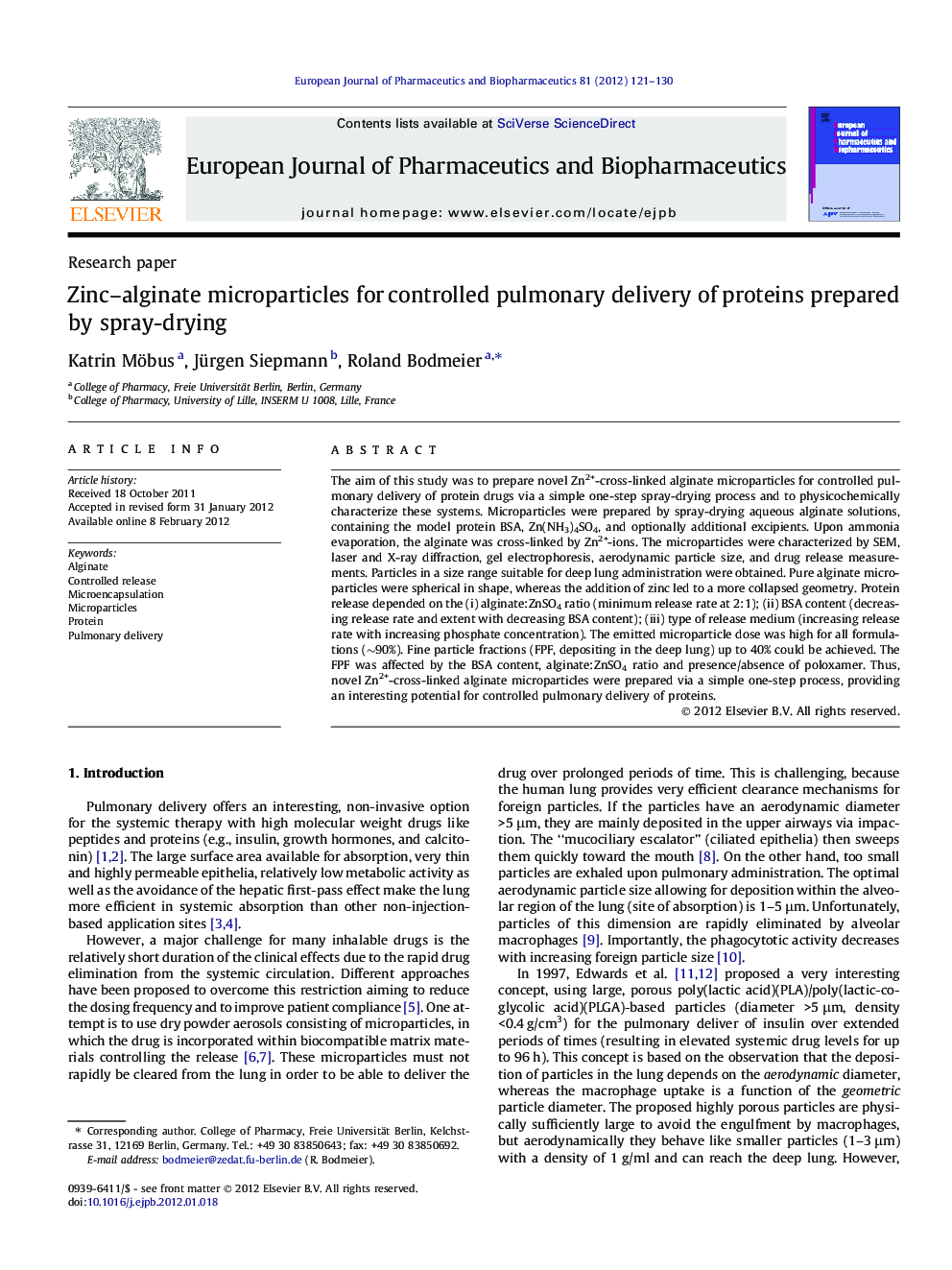| Article ID | Journal | Published Year | Pages | File Type |
|---|---|---|---|---|
| 2083770 | European Journal of Pharmaceutics and Biopharmaceutics | 2012 | 10 Pages |
The aim of this study was to prepare novel Zn2+-cross-linked alginate microparticles for controlled pulmonary delivery of protein drugs via a simple one-step spray-drying process and to physicochemically characterize these systems. Microparticles were prepared by spray-drying aqueous alginate solutions, containing the model protein BSA, Zn(NH3)4SO4, and optionally additional excipients. Upon ammonia evaporation, the alginate was cross-linked by Zn2+-ions. The microparticles were characterized by SEM, laser and X-ray diffraction, gel electrophoresis, aerodynamic particle size, and drug release measurements. Particles in a size range suitable for deep lung administration were obtained. Pure alginate microparticles were spherical in shape, whereas the addition of zinc led to a more collapsed geometry. Protein release depended on the (i) alginate:ZnSO4 ratio (minimum release rate at 2:1); (ii) BSA content (decreasing release rate and extent with decreasing BSA content); (iii) type of release medium (increasing release rate with increasing phosphate concentration). The emitted microparticle dose was high for all formulations (∼90%). Fine particle fractions (FPF, depositing in the deep lung) up to 40% could be achieved. The FPF was affected by the BSA content, alginate:ZnSO4 ratio and presence/absence of poloxamer. Thus, novel Zn2+-cross-linked alginate microparticles were prepared via a simple one-step process, providing an interesting potential for controlled pulmonary delivery of proteins.
Graphical abstractZinc–alginate microparticles offer an interesting potential for pulmonary delivery of proteins.Figure optionsDownload full-size imageDownload high-quality image (211 K)Download as PowerPoint slide
